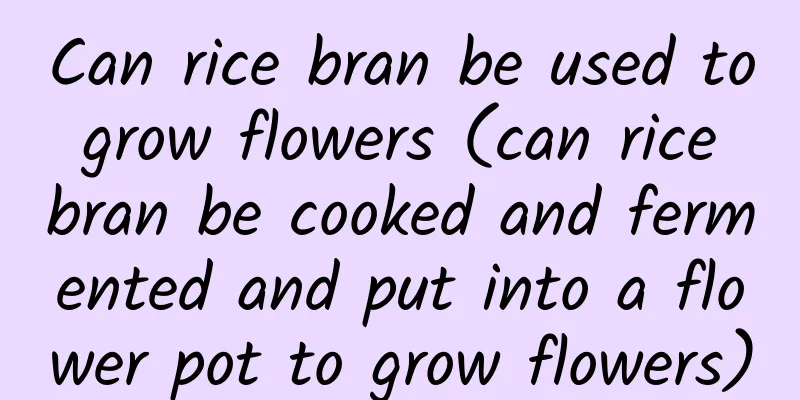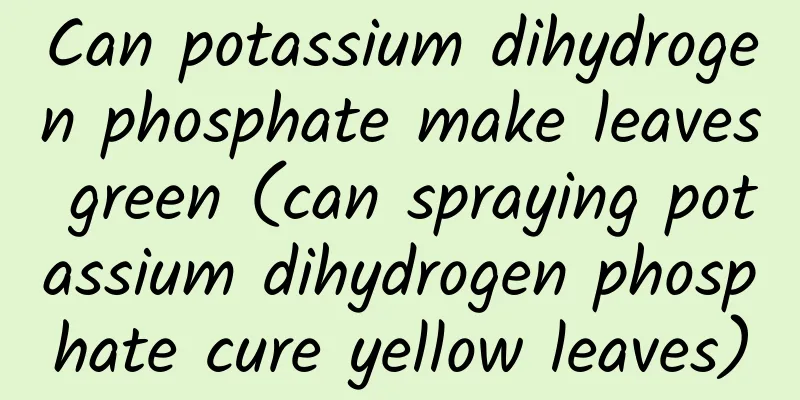Green diamond breeding methods and precautions

1. Maintenance methods1. Temperature: Although it can start to grow when the temperature reaches ten degrees, the most suitable temperature for growth is still around twenty degrees. During maintenance, be careful to avoid heating and excess cold air, and maintain a constant temperature of around twenty degrees, its growth rate will accelerate. 2. Watering: It is suitable for growing in a humid environment, so the soil should be kept moist for a long time, especially in summer and autumn when the climate is relatively dry. In addition to watering the roots, you should also spray water mist on its branches and leaves to replenish water. It is best to adjust the air humidity to between 50 and 70 percent. 3. Fertilization: It is a fertilizer-loving plant. When raising it, you can use farmyard manure as base fertilizer, and then apply topdressing during the growth period. The interval between topdressing is ten days. Fertilizers can be calcium- and nitrogen-containing. When it comes to fertilizer, you should pay attention not to use only one type of fertilizer all the time, as this will cause the leaves of the plant to become soft. If the climate is relatively cold and the plants grow slowly, there is no need to apply fertilizer at this time. 4. Light: Strong light can easily burn its leaves, so the light should be mainly diffuse light. Especially in the summer, you should pay special attention to shade. Although it is relatively shade-tolerant, it cannot always grow in a dark environment. Just ensure that the sunlight exposure time is five or six hours a day. 2. Breeding techniques1. Repotting: If the branches and leaves of the plant fill the flowerpot, making it top-heavy, the roots will emerge from the drainage holes. At this time, it is necessary to repot. When repotting, cut off the rotten and dry branches. 2. Pruning: It has strong vitality. If there are branches that grow poorly or affect the ornamental value, they should be pruned in time. Don't worry about cutting them too badly. After pruning, avoid watering the cut. After the cut is dry, you can water it normally. 3. Problem Diagnosis1. Pests: The branches and leaves of Green Diamond are juicy and easily infected by pests. If infected, it is necessary to use Bordeaux liquid diluted agent to spray it for treatment. 2. Disease: The yellowing of leaves of the plant may be caused by insufficient sunlight. The lighting time needs to be slowly extended. In this way, the leaves of the plant will soon turn green again. IV. Other issues1. Edibility: It is not edible. 2. Toxicity: It is not poisonous, but the juice can easily cause allergies. Therefore, if you come into contact with the juice, wash the contacted area as soon as possible. |
<<: Borage cultivation methods and precautions
>>: Cultivation methods and precautions of Ma Yinhua
Recommend
How to cultivate Metasequoia bonsai
1. Watering When caring for bonsai, do not water ...
How to remedy the root rot of soil-grown white palm
1. Remove rotten roots After discovering that the...
Breeding methods and precautions of Bay Leaf Shou
1. Maintenance methods 1. Substrate selection: Th...
How to care for green radish in summer
1. Replenish water Watering in summer must be app...
How to water the Little Red Star
Watering tips for Little Red Star The little red ...
What to do if lucky bamboo freezes to death? How to keep lucky bamboo warm in winter
1. What to do if you freeze to death If the lucky...
1 bowl of eggshells and 1 pound of tomatoes, the soil will immediately become fertile and 200 flowers will bloom!
Grab a handful of egg shells and throw them into ...
Do you need to prune all the branches of roses that don't bloom (can you prune all the branches of roses in winter)?
In winter, rose branches need to be pruned regard...
How to grow Fragrant wood in autumn
1. Breeding conditions 1. Soil: It does not have ...
When is the right time to plant autumn cucumbers?
Best time to plant autumn cucumbers Autumn cucumb...
The flower language and meaning of tobacco, what are the legends?
1. Flower language and meaning 1. I love nothing ...
Diseases and Pests of Bird's Nest Fern and Their Control
1. Anthrax. Anthracnose is a common fungal diseas...
How to propagate succulent plants
Propagation by division Division method Division ...
How to grow potted carnations
1. Breeding environment 1. Potting soil: The firs...
Why do gardenias have yellow leaves? Caused by improper watering, fertilization, and lighting
1. Improper watering Cause: If you water the gard...









